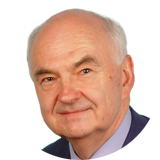AI-enabled Decision Aid for Solving Complex problems in a Judge-advisor Setting

Dr. Janusz Kacprzyk, Ph.D.
ABSTRACT
Decision making, the most common and frequent human activity, tends to proceed in more and more complex problem settings and environments, with many stkeholders, much uncertain, imprecise and missing information, a high changeability of characteristics and parameters, multiple criteria, goals or aspects, etc. Moreover, in virtually all non-trivial systems a crucial role is played by the human being in the decision process.
In many, of not most cases of complex problems an effective and efficient approach is to assume the decision making to proceed in a setting in which there is a domain expert, the so-called judge, who has a deep expertise in his domain, e.g., city transportation, but not in the solution tools, e.g. optimization, and an additional expert, the so-called advisor, who has a deep expertise in the solution methods but not necessarily in the domain. Then, the so-called judge-advisor paradigm can be applied as shown in the presentationm with an analysis of advice giving, taking, and rejecting. These processes can be amplified by a wide use of AT tools and technique leading to the co-called AI-enabled approaches.
The above issues will be considered, mainly from the point of view of decision aid but with some remarks on decision supprt and recomendation. Some examples will be mentioned.
BIOSKETCH
Janusz Kacprzyk is Professor of Computer Science at the Systems Research Institute, Polish Academy of Sciences, WIT – Warsaw School of Information Technology, and Chongqing Three Gorges University, Wanzhou, Chongqing, China, and Professor of Automatic Control at PIAP – Industrial Institute of Automation and Measurements in Warsaw, Poland. He is Honorary Foreign Professor at the Department of Mathematics, Yli Normal University, Xinjiang, China. He is Full Member of the Polish Academy of Sciences, Member of Academia Europaea, European Academy of Sciences and Arts, European Academy of Sciences, Foreign Member of the: Bulgarian Academy of Sciences, Spanish Royal Academy of Economic and Financial Sciences (RACEF), Finnish Society of Sciences and Letters, Flemish Royal Academy of Belgium of Sciences and the Arts (KVAB), National Academy of Sciences of Ukraine and Lithuanian Academy of Sciences. He was awarded with 6 honorary doctorates. He is Fellow of IEEE, IET, IFSA, EurAI, IFIP, AAIA, I2CICC, and SMIA.
His main research interests include the use of modern computation computational and artificial intelligence tools, notably fuzzy logic, in systems science, decision making, optimization, control, data analysis and data mining, with applications in mobile robotics, systems modeling, ICT etc.
He authored 7 books, (co)edited more than 150 volumes, (co)authored more than 650 papers, including ca. 150 in journals indexed by the WoS. He is listed in 2020 and 2021 ”World’s 2% Top Scientists” by Stanford University, Elsevier (Scopus) and ScieTech Strategies and published in PLOS Biology Journal.
He is the editor in chief of 8 book series at Springer, and of 2 journals, and is on the editorial boards of ca. 40 journals. He is President of the Polish Operational and Systems Research Society and Past President of International Fuzzy Systems Association.

